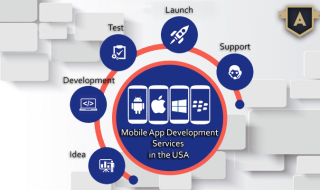
There are plenty of reasons to develop an app: maybe your business need an app, or maybe you have a great idea that you think can be the game changer. But irrespective of the reason, you will always need to start from the beginning. So firstly, hire a mobile application developer for your project. The next step after hiring a mobile applications development services is to understand a little about the technology choices involved so that you can be more informed when you discuss the project with your mobile app developer.
Coming to mobile applications development technology, it is necessary to know what type of app will work best for your idea: native, hybrid or web.
Native Mobile Apps
Native mobile applications are probably what come to mind when you think of applications. A native application is one which is developed to be ‘native’ to a particular platform: Google’s Android, Apple’s iOS, Windows Phone or BlackBerry OS.
The primary advantage of a native application is that it optimizes the user experience; the application will be able to operate faster because it would have been designed specifically for that platform.
Hybrid Mobile Apps
A hybrid application can be installed like a native application on a device, but it runs through a web browser. These applications are developed with the help of a language known as HTML5.
Since its inception, HTML5 has played a crucial role in shaping the future of mobile; renowned companies such as LinkedIn, Facebook, and Xero are some of the examples that got a lot of attention via HTML5. However, from the last year many of such companies switched from their existing HTML5 apps and started again with native applications. The reasons behind this shift is mainly that these hybrid applications are not as swift, dependable or flawless as native applications.
Web Applications
There are mainly three types of web applications: traditional, responsive and adaptive. Traditional web applications comprise any website. A responsive web application displays different design when it’s used on a mobile device like phone or tablet, transforming its design to suit the device it is viewed on.
On the other hand, an adaptive web application doesn’t change its design. It will represent the same design but will adjust it to fit the different screen size of a device.
The main advantage of web applications is that they are made using the most popular programming languages—so the talent of a developer is readily available.
To hire a service of an App development company which can guide you more about the different platforms to build your app in order to maximize the profit for your organization.






